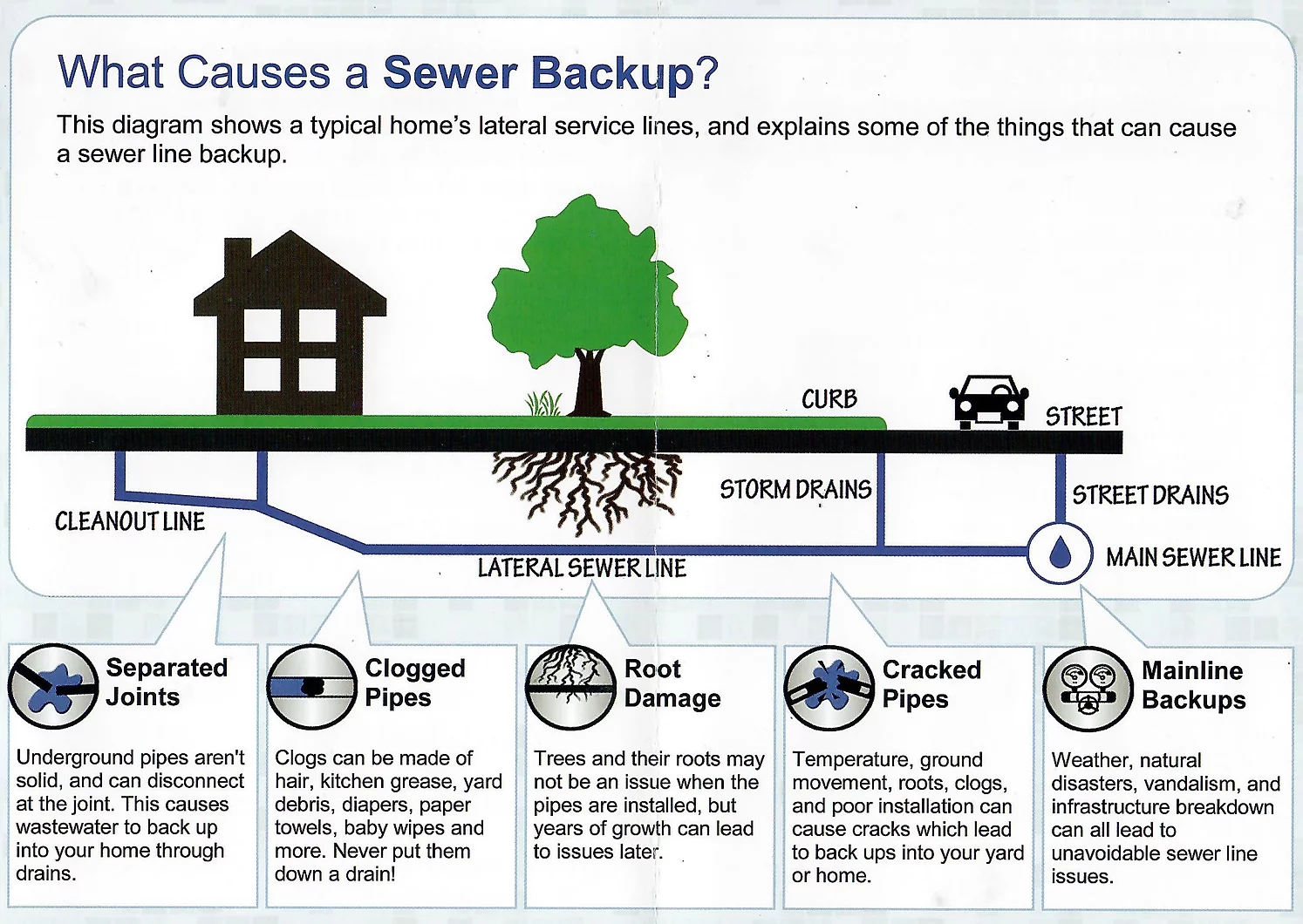Sewer Backups

What is a Sewer Backup?
A backup occurs when sewage overflows from your toilet, tub, sink, or any drain in your home. They're common in older homes and homes with basements.
What should I do if I have a Sewer Backup event?
1) Carefully try to close as many drains as you can, using care with ceramic plumbing fixtures.
2) Don't run any water down any drain or toilet in your home until the clogs are cleared.
3) Check if neighbors are having any issues. This could indicate that the problem exists in the main line.
4) Call a plumber to assist with clearing the issue, closing your drains, and assessing the situation.
5) Call Cherry Hills Sanitation District to report the issue at (970) 493-6130 (Office) or (970) 215-5454 (Bill Wallen). We'll recommend a course of action and send our Maintenance Supervisor to check the main line for issues.
6) Call your homeowner's insurance company to determine what coverage may be available.
Who pays to clean up the mess?
In the vast majority of cases, the homeowner pays. If the backup occurs in your service line, or in the main line, as a result of anything other than the utility's negligence, it is ultimately the homeowner's responsibility to clean up the mess and restore the line.
Cherry Hills Sanitation District is not responsible for your lines, or for acts of nature or vandalism. In many cases, we will coordinate clean up with a cleaning service to help minimize the damage, but the financial responsibility probably lies with you as the homeowner.
What can I do to safeguard my home from a sewer backup?
-Plumbers can assess your risk and install a back-flow valve to protect basements.
-You can use grease-fighting liquid dish soap like Dawn (R) to break up grease blockages.
-Review the list below of items to never flush or wash down a drain.
-Make sure your homeowners insurance policy includes coverage for sewer backups.
What is Cherry Hills doing to prevent these issues?
Unfortunately, even with regular scheduled maintenance, some backups are simply unavoidable. These include events cause by vandalism, infrastructure breakdown. ground movement, and natural disaster.
Fortunately, Cherry Hills Sanitation District utilizes industry Best Practices to maintain sewer systems and lessen the risk of a stoppage. This includes video and physical inspections, the use of degreasing chemicals, and cleaning.
Don't Flush!
Please do not flush or wash down a drain the following: Air Fresheners, Automobile Fluids, Automobile Parts, Bacon Grease, Bandages, Batteries, Bones, Books, Bread Dough, Building Supplies, Butter, Cake Frosting, Candles, Cement, Cell Phones, Cheese, Cigarettes and Butts, Cleaning Supplies, Clothing, Coffee Filters, Coffee Grounds, Compact Discs, Cosmetics, Cotton Balls/Swabs, Condoms, Cooking Oil, Diapers, Deceased Pets, Dental Appliances, Dental Floss, Egg Shells, Eyeglasses, Facial Tissue, Fat, Oil, or Grease, Fertilizer, Fruit, Food Solids, Glue, Gravy, Hair and Fur, Hair Brushes, Houseplants, Insects, Jewelry, Keys, Kitchen Grease, Lard, Mayonnaise, Meat Drippings, Medicine, Metal Objects, Money, Oatmeal, Paint, Paper, Paper Towels, Perfume, Pesticides, Plastic, Poison, Powders, Putties, Rags, Rocks, Rubber Bands, Salad Dressing, Sanitary Pads, Solvents, Sour Cream, Sponges, Styrofoam, Syringes, Tampons, Teeth, Toothbrushes, Toothpaste, Toys, Vegetables, Wet Wipes, Yard Debris
Sewer Backup Insurance Options
Your homeowner's insurance may offer coverage for sewer and drain backups. It could provide thousands of dollars of coverage for relatively low cost. Ask your agent for more information.